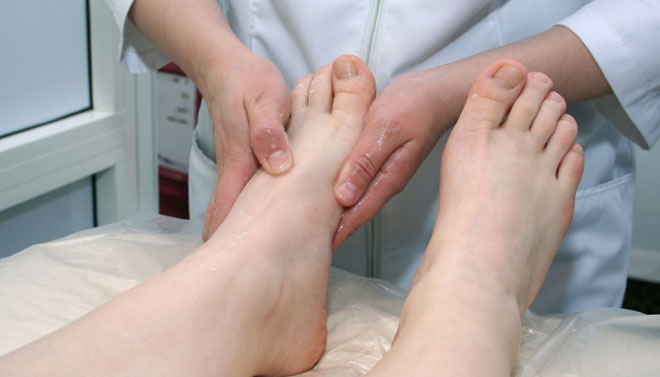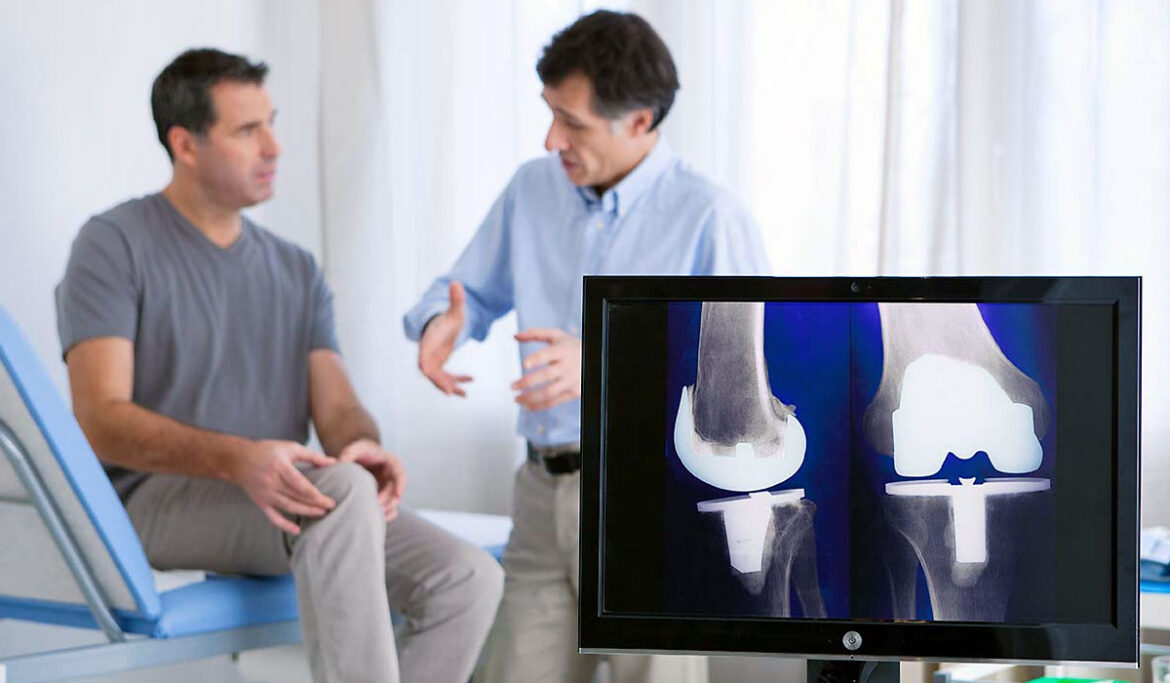The lower part of the body is more prone to swelling. Daily stress, fatigue and excursion can cause leg, foot or ankle swelling. However, the reasons for swelling of ankle may be many. The swelling is usually apparent at the end of a hectic day of after standing or sitting for hours continuously. While getting ready for going out this morning, you might have found that you don’t fit in your shoes. The reason could be, perhaps you’ve a swollen ankle.

So if you’re still in doubts as to why your ankle is swollen, read on to know all possible reasons and if it signifies any impending danger.
Pregnancy
Pregnancy is surely the best time in a woman’s life. Everybody eagerly awaits for the upcoming happiness. But only a few know that during pregnancy, more fluids are retained in the body. Natural hormonal changes can also reduce the circulations in legs. Moreover, the increased uterus size exerts pressure on veins which hinders return of blood to the heart. All these reasons can cause swollen ankles and feet which vanishes after delivery.
What can help?
- Sleep on your left side
- Don’t wear tight bands on your ankles
- Don’t stand for longer periods
- Consulting a doctor is always recommended
Injury
Injuries are simply unavoidable. One might unexpectedly twist or sprain the ankle which leads to swelling in the ankle. Due to injury, the ligaments are stretched beyond their normal limits. Acute or chronic injury can trigger inflammation which can cause ankles to swell. Significant swelling may also appear due to fracture in the ankle. This is also accompanied with intense pain. Although, it is difficult to differentiate between ankle sprain and fracture, an advice from an experienced doctor is suggested if pain becomes unbearable.
What can help?
- PRICE (Protect, Rest, Ice, Compression and Elevation)
- Reflexology
- Foot Massage
- Do not stop moving the joints
Deep Vein Thrombosis (DVT)
DVT or Deep Vein Thrombosis occurs when there is a blood clot in one or more deep veins in the body. In most cases, the clot is formed in the leg but it can also appear or travel to different parts of the body. This usually happens when you don’t move for a long time or you are confined to bed. DVT is mostly observed in adults of over 50 years of age. Deep Vein Thrombosis can be life threatening, so it’s better to seek medical attention as soon as possible.
What can help?
- Avoid sitting still after surgery or in case of bed rest
- Wear compression stockings
- Doctor may prescribe some blood thinners
[Read more about Deep Vein Thrombosis (DVT)]
Obesity
Carrying some extra kilos may contribute to swelling in the ankle, feet or legs. Being overweight can cause edema which means buildup of fluid outside the circulatory system. Gravity retains this extra fluids in lower part of body and thus, ankles get swollen. No matter where the extra weight or mass gets accumulated in the body, it is your ankles and foot that end up bearing the load. Since, ankles are the weight-bearing joints, the ill-effects of obesity are confronted by them much earlier than other parts of the body.
What can help?
- Lose some weight in a healthy manner
- Consult a podiatrist
- Elevate your legs above your heart for 10-15 minutes daily
- Cut down your salt intake
Medication
Some particular medications also end up with swelling in ankle. Testosterone or estrogen, steroids, non-steroidal anti-inflammatory drugs and antidepressants increase the thickness of the blood and thus hinders its circulation. If you feel like your medications are leading to puffiness in your ankle, do visit your doctor immediately. Don’t simply stop your dosage of medicines without discussing it with your doctor.
What can help?
- Talking to the doctor works best
- Your doctor may reduce the dosage of your medicine
Pericarditis
Pericarditis is swelling in the pericardium. Depending upon its type, signs and symptoms, swelling in the ankle may be seen. This might indicate constrictive pericarditis. This is a serious type of pericarditis where the pericardium becomes thick or hard. This hinders heart muscles from expanding and prevents it from working like it should be. The heart may compress and blood may accumulate into abdomen, lungs and legs, and causes swelling. An abnormal heart rhythm is also common.
What can help?
- Colchicine
- Over-the-counter pain killers
- Corticosteroids
Cirrhosis
Cirrhosis happens in response to damage to your liver. Long term exposure to toxins such as viral infections or alcohol causes severe scarring of the liver. The scarred liver is not able to function properly which in turns causes cirrhosis. Cirrhosis halts blood from passing through the liver and exerts pressure on the veins. The veins cause high blood pressure and may burst. Excessive pressure causes swelling in ankles and legs.
What can help?
- Avoid alcohol consumption
- Hemodialysis
- Beta blockers may be prescribed
- A low protein diet may be suggested
Sprains or Strains
Strains and Sprains, both can cause swelling in the ankle. Sprains are acute injuries whereas strains can be either chronic or acute. Mild strains and sprains can be easily treated at home. Severe strains and sprains may need surgery to repair torn muscles, ligaments or tendons. Many strains or sprains in the ankle heal up automatically within 4-6 weeks, if the patient avoids strenuous activity and rests the ankle.
What can help?
- Use footwear that offers protection and support
- Do not stand or walk on the strained or sprained ankle
- If your doctors allows, take non-steroidal anti-inflammation drugs
Heart or kidney disease
Many a times swelling in ankle could be sign of liver, heart or kidney disease. Liver disease can prevent blood from leaking out of blood vessels. When kidneys do not work properly, fluid can collect in the body. Due to gravity, this fluid is tend to be collected more in ankles and feet and hence, ankles become swollen. Persons with Congestive Heart Failure are more likely to observe a swelling in their ankle.
What can help?
- Lifestyle and diet changes and management can work
- Measure your weight every morning before breakfast. Note it down for further reference
- Take prescribed medications on time
- Quit Smoking
[Also Read: Health Conditions That Affect Your Kidneys]
Infection
Sometimes swollen ankles are outcome of an infection. Lower legs get affected by the cellulitis which is a bacterial infection. If left untreated, it can become serious. Foot infections are more common in people with nerve problems of feet or with diabetic neuropathy. Infection can also develop after a wound to the skin or injury and may lead to swelling, pain, redness or warmth around the infected area. It may be accompanied with fever as well.
What can help?
- Go for a medical treatment
- Bone resetting
- Pain-relievers may be prescribed
[Here you can read more about Orthopedics Surgery in India]
